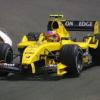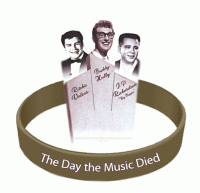I did not want to block the RIP-messages in the other thread. So here's to you, Niki. Love you man.
Niki Lauda: the riddle wrapped in an enigma
'Appearances deceive.' That would my the epitaph for Andreas Nikolaus Lauda, (1949-2019) better known as Niki Lauda, triple World Champion, if he would allow me to carve his gravestone. I would do it personally, gladly, with a blunt chisel, because my admiration can not be shunned by blisters on my fingers. Rhetorical question: has there ever been a F1-driver, no, has there ever been a sportsman who's appearance, who's personality, who's image in the public eye has been so multi-fragmented, changed, been put on his head, and back upright again than Niki Lauda? The only who comes close is Muhammed Ali, who went from loud-mouthed Golden Medal-winner, to the slender, attacking rebel actually liked in a perverse way by the racist part of white America, to the conscientious Muslim-objector hated by white America, to the adored by white, liberal and black militant public, to the Parkinsonian icon with which we now have pity.
All true, but with Ali one always has to ask: has Ali changed so much during his career or have we changed so much? Wasn't Ali always the same, bar his name, and have we, the outsiders, been constantly focussing and refocussing on his person? That is not say that Lauda has changed so much. It was always there. The intelligence, the humour with the faint smile, the irony, the no-nonsense, the politeness covering up a total-no-bulshitter. It seems that Lauda was always his own best observer. Read his auto-biography Protocol, still the best book about Lauda, about motor-racing in general in my book. Lauda could be dumb, brash, totally crazy like the rest of us... but afterwards he always knew. He could reflect on it, on himself as if he was addressing his naive younger brother.
Take his start in motor-racing. Was he really good, in the beginning? No. As he said himself: 'I was an idiot. Horny about racing. Tried to overtake where it was not possible.' Or how he spend money on racing, when he did not have any. The car he raced with - be it a Porsche or a Mini- was his only possession. Crash it once, and his career was gone. He would let the car tune at the best tuners, absolutely top-flight service. And still... it is impossible to know, but even back then it seems he knew what he was doing and that he was doing it stupidly. The judgement about his own actions and the negative judgement was already there, in his head, formulated in his precise, gruff accent. He just could not help it.
There is this story about him driving touringcars for BMW. How he arrived an hour early, to set up the pedals, the positioning of the steering. The BMW-bosses were impressed, in sort of an awkward way... Who was this guy? He riddled them even more with his driving. As calculating and analytical Lauda was, around the ring in a touringcar, he was a maniac. There is this story that a photographer set up his camera somewhere at the Nürburgring. Lauda came past, in the words of the photographer: 'The wheels were all pointing in an direction that seemed physically impossible. I was certain he was going to crash. But he didn't. I said to my assistant: pack it up. It would be useless watching and photographing the other cars. It would be like watching grass grow.'
The way he entered F1... that was really the way the loathed paydrivers of today came into F1. The Ericcsons, the Chiltons, the Maldonado's.... But then even worse. In 1972 Lauda paid and drove for March F1, then owned by later FIA-boss Max Mosley. They had a terrific driver, Ronnie Peterson, but very, very bad management. Lauda basically had to drive hand-me-downs. He did that very, very badly. Lauda would be two, three or four seconds slower than Peterson in qualifying. He made nill impression. If internet had been there, the social-media based F1 fans would have screamed for his dismissal, for his banishment, for his head!
Then March did not offer him an new contract for 1973. They had noticed he was very good in testing, so he could do that. And some F2 (in which Lauda was at least competent). For Lauda it was like a death-sentence. He was dangerously in debt. After the disastrous news, he drove his car to the airport and seriously considered crashing into a concrete pillar. His life was over. He would have to work for forty years and live on the minimum to pay off his debts. Then he thought: 'The only way I can get out of this hole, is by staying in F1 and succeeding.' So to come out of his 'gambling'-debts, he made another huge gamble. Basically, he committed fraud. He got a loan on the house of his grandfather (so on a collateral he did not own, that is fraud). He bought himself into the dwindling BRM-team. He knew that after six months there would a huge problem, because then a 'hole' was waiting for him, financially. There was no alternative. So he did it.
Niki Lauda: the riddle wrapped in an enigma
'Madness. The situation forced my hand, to risk it all. I got lucky, but today I would not do it again like that. Would I have to make the same decision again, I probably would not have become a racing-driver at all. The chance to make a career out of motorsport, to be a success, is so unbelievable small, that it is madness to lend money to force your chances.'
Thus spoke Niki Lauda to Herbert Völker in 1977, not long after he won his second world-title, not long after he had left Ferrari, the team that had made his career. Or had it? For the book Protocol, written together with Völker, Lauda had revisited the time he stood on the bring of personal and financial disaster. He had borrowed 2,5 million Austrian shilling for a place in the March F1 and F2 team. In F2 Lauda was competent, in F1 Lauda was a failure, the car too, the team too, but there was no sign at all of a good driver in a bad car. The outside-world could only have concluded that toothy Austrian was an example of the Peter Principle: in the end, everyone gets promoted to a level he can't handle. For Lauda, it seemed, that level was F1.
In touringcars, however, everyone admitted, he was excellent. Lauda drove everything that... well, drove. He could earn up to 10.000 Deutschmark if he won a race... which he did, often. Unfortunately, most of his earnings went to pay his debts... So when March did not offer him a place in their F1 team for 1973, Lauda's despair was understandable. He had to establish himself as a F1 driver, one that got paid to drive, otherwise, otherwise... the alternative was unthinkable.
So Lauda approached 'Lord' Louis Stanley, the arrogant and often comical conceited teamboss of the dwindling F1 team BRM. Imagine the current F1 team Williams between 2009-2013, and you get the picture. A once great team, slowly slipping back. Lauda sort of suggested he could perhaps get sponsorship from the Raiffeisenkasse, if he got a contract at BRM. Lauda tested for BRM... impressed Stanley. And they signed a contract. Lauda would sponsorship-money and would get price-money, the deal was like that. Of course Lauda had no sponsor, because he had not managed another credit from his so called sponsor. So Lauda made a tiny-weeny-change in the arrangement. He made the team agree that he would pay his sponsorship-installments shortly after pay-outs from the team to him. So... BRM would pay Lauda 1000 dollars for place X at the Grand Prix of Y... And a day later Lauda would pay BRM a 1000 dollars as 'the sponsor'.
In other words: Lauda had become his own Ponzi-scheme, an embezzlement in which you pay the 'profit' of the next person you know to lure into your game to the guy that got YOU in the game in the first place. Except for Lauda the guy just above him in the Ponzi-scheme was himself... Of course halfway the season, there would be a huge problem, because the price-money in no way was comparable with the money Lauda had to pay. Every race, his 'sponsors' reached a larger deficit. Lauda had not really jumped the abyss, he had only pushed the abyss a couple of months forward...
Luckily, Lauda had not just sat back in amazement when Peterson had trounced him the season before. He had analysed Petersons style, had looked where he got a tenth there and a tenth there. Lauda had learned. He had also learned that talking sweet to your teamboss brought you no further. Peterson would drive as fast as he could, even if the car was scheisse, which is '****' in German. Lauda thought: 'It is better to have an argument with your boss so he will put energy in making the car better.'
So the Lauda of 1973 was a different person than that of 1972. For the public perhaps he was still a pay-driver... say, a Maldonado... someone with some talent, but also someone who would disappear when his money or that of his sponsors ran out... For the BRM team Lauda was something like a piece of furniture. He got the leftover-car, the left-over tyres, the left-over oil... It could not deter Lauda. He took the lemon he was given, and tried to make lemonade out of it. By now, he was so savvy, so technically smart, he could. He would get the lemon, make lemonade out of it by out-qualifying his two teammates (yes, the BRM-team fielded three cars!), of course he would then lose the car, get another lemon, squeezed it again, got another lemon...
Slowly but surely, BRM started to notice the 'Benjamin' of the team was actually their best driver. In Monaco Lauda qualified high up and drove around in third place for a while. Someone in Italy noticed. Lauda finished fifth in Zolder, Belgium, where almost everyone - except the dominant world champion Stewart - crashed out of the race on the crumbling asphalt of the track. Lauda led a race in the rain, in Mosport, in Canada. 'A grotesque race,' as Lauda would call it himself. Any other driver, certainly today, would have scooped all the honour, all the credit to himself. Lauda said: 'Nah. It were the Firestone-rain tyres that were so much better than the Goodyears of the others.' Lauda knew it, when he was driving past everyone in the rain like he was God. 'Hey, why is everybody driving so slow?' It was funny, it was awe-inspiring for the outsiders... but Lauda knew exactly what was going on.
He did not win that race, but he had already won his outrageous gambit. Enzo Ferrari had seen his race in Monaco, his adjudante Luca di Montezemelo contacted Lauda's manager, his nephew, Eugene, in his crammed office in Vienna. 'Ferrari called', Eugene said, one day, when Lauda came in. Eugene always said that. Or Lauda would always say: 'Has Ferrari called yet?' And Eugene would say: 'No, there was a problem with the telephone-line' or nonsense like that. So that day that Eugene said: 'Ferrari called,' Lauda responded: 'Oh really. What did he say? That he is going to throw everybody out and sign the great Nikolaus Lauda?'
Well, sort of. Lauda understood from the excitement of Eugene that Ferrari HAD called. They WERE interested. And it did not take long for Niki to sign a contract with Ferrari. The fact that he already had signed a new contract with BRM, with Louis Stanley, for the next season, one in which he would paid to drive in place of vice-versa, was not really a problem. The lawyers of Marlboro - so BRM's sponsor - said to Lauda he should not worry. BRM, you see, had not paid Lauda his price-money for several months. You know, the price-money that Lauda used to sent poste-retour to BRM as sponsorship-payments. Lauda had leapfrogged the abyss. His Ponzo-scheme, of which he was both embezzler and embezledee, had worked.
Lauda was free.
Part Four (and last...)
Any F1-fan, even the one that has started watching last week, knows who the somewhat oddly dressed (red racing-cap, colourful sweater, corduroy trousers) pot-bellied man in his sixties is, who is very regularly shown watching proceedings from the Mercedes-garage. Arguably he is shown just as often as Toto Wolff, the teamboss of Mercedes F1 and quite likely more often than Paddy Lowe, the engineer of Mercedes, and even more often than Lewis Hamilton's girlfriend of Nico Rosberg's wife... And that for someone who still bears just those scars that most people can't bear to watch in real-life: scars of third and fourth-degree burns. In the subway or train, if you would meet someone with lesser injuries than him, you would scarcely dare to look. With Lauda you can just stare right at him. You don't see the burns. You see Niki Lauda.
That is to say: the accidental F1-fan knows his name. 'Oy, that is Lauda.' Not that they really know him, he is too complicated character to sum up in one sentence. But if you really try to, you can make a shallow but not altogether incorrect line: 'He almost burned alive in a F1-car. Then he won another two championships.' Those who have followed F1 a little longer - say ten years - will add: 'Dares to speak his mind.' That would also be true. Lauda himself has even said he was hired by Mercedes, as non-executive chairman, for exactly that. To FIA quarterly magazine Auto he said: 'Sometimes management is pissed off with me because I tell them what's going to happen. We had a board meeting in Stuttgart (before Spa 2014, Nemo) with all our bosses there and I said: "They will hit each other". "How can you say this?" they asked. "Because I know." And he added some other things, amongst which a typical Niki-line: 'They find it very hard to convince me of things I don't think are right.'
F1 cognoscenti, guys (usually) who have followed F1 longer than 20 years (we are heading into anorak territory here) prick up their ears right here. 'Things I don't think that are right...' If one has followed Andreas Nikolaus (Niki) Lauda, one knows what that means, when Herr Lauda thinks 'things are not right'. He has often been nicknamed The Rat. 'The Donkey' would also be a good one, in those circumstances when the Austrian feels things are going in the wrong direction. Then he will stop, in the middle of the path taken, plant his feet and refuse to budge an inch. And you can drag, hit and yell, he will only stare at you with his sad but determined eyes. 'No. First change what I want to. Then I'll move.'
There is this terrific story about the 1977 season that.... Before that, a short pre-face. We all know, even the youngsters, how, when Lauda survived his fiery accident at the Nürburgring in 1976, how he came back after just four weeks, grabbed fourth place in the Italian Grand Prix, with wounds that were still bleeding under his helmet. We don't have to tell in detail how the 1976-title fight went to the wire in Fuji, Japan. How James Hunt grabbed the title by a third place and a dramatic late-race pit-stop. How Niki Lauda had gotten out of the car, shortly after the beginning of the race, because he considered the dramatic rain too dangerous to race in.
Already fewer people know that James Hunt, directly interviewed after the race, admitted Lauda had been right. It had been too dangerous to race. Even fewer people know - and again, we are moving into the terrible landscape of elderly men who, eagle-eyed, write down chassis-numbers of old F1 cars at auctions and venues like Goodwood - how that decision by Lauda set up the situation where for once a driver demonstrably won the world-championship of F1 in a car that was not the best of that season, not the second best, not even the third best car of that season. And a situation where a F1 driver won the title despite the machinations against him - by his own team.
We are talking about 1977. The revised Ferrari 312 t2 for that season had been developed further for that season - but in totally the wrong direction. Only later it was found out that in a search for more mechanical grip, partly to keep up with the first generation of groundeffect-cars by Lotus (which principle Lauda nor Mauro Foghieri, the car-designer of Ferrari understood, nor did anyone but Lotus at that time), the geometry overloaded the tyres. The car would be good here, but would be terrible there. More often terrible, than good, by the way. The car would understeer in one corner, and oversteer in another. As the Dutch say: with this car, one could not make chocolate. Gilles Villeneuve - who replaced Lauda at Ferrari and who was not a man who had problems with wrangling bad cars to decent speeds - said later: 'I can't understand how Lauda won the championship in this car. It was terrible.'
Anyway, there is this practice-session. Lauda drives out of the pits. At the end of the pitstrait he notices: 'Oh Scheisse.' He creeps around the track. Foghieri waits for him, with eyes as big as saucers. 'What-a-are-you-doing-ah?' 'I am not driving this piece of ****. It under-steers like crazy.' 'But you need a time! Your team-mate sets time, he is seventh!' 'Why would I set a time that is much too bad? The car should be sorted out first.' And whatever Foghieri did, stamp his feet, threaten with dismissal, Lauda stood in the pits, hands on his hips, watching him coolly. Why would he drive in a slow, understeering car?
In an ideal world, one would hope that the people at Ferrari would admire and respect Lauda's honesty and straightforwardness. But this is not an ideal world, and F1 has never been an ideal world, and the Ferrari-team, it is sad to say, is the least of the ideal world within F1. Ferrari - the man, the team - resented Lauda's decision back then, in Fuji, not to race. Or rather: that he had come back to race in the 1976 season at all. The Old Man said so himself. Once, Lauda showed up in Fiorano to test. Reutemann was there. Lauda got the word that Enzo wanted him to test in Paul Ricard. 'Excuse me?' Lauda called the Old Man. 'From now on, I will take the decisions,' Ferrari told Lauda. 'Really,' Lauda said, 'and why is that?' 'Because of Monza. It was the wrong decision to return after your accident. If you would have sat out the season, we would have lost the title optically in a different way.'
Lauda is not someone who screams easily. But that day he did. He shrieked into the phone: 'Perhaps it is good style for an Italian, to lie in bed and lose there! Optically, excellent! But if I have to fight, then I will fight and not lie in my bed. THEN I WILL FIGHT ON THE TRACK AND TAKE MY RESPONSABILITY! AUF WIEDERSEHEN!' And then he banged the phone on the receiver. It took a while to sooth over the relationship after that, but for Lauda, the bond was broken. He took the decision there and then to leave Ferrari. A man with principles, Lauda. But he could also be political. Because the car was so terrible, because Ferrari - the man, the team - treated him with suspicion, he told Enzo Ferrari a lie in 1977: 'I will never drive for another team than Ferrari.' As Lauda said: 'That was a lie. It was unfair. But I needed to bring calm in the team, to win the world-championship. It was sugar for the emotional lions.'
Lauda won the 1977 F1 worldchampionship. No other driver could have managed to do that with that car. Mario Andretti, the greatest allrounder of all time, had the best car in the first Lotus ground-effect car (the 78), but he made so many mistakes he threw away the title. Jody Scheckter was driving for a new team (Wolf), could have won, but could handle bad results much less than Lauda... Reutemann, Lauda's teammate, never had a chance. When Lauda was asked if he saw Reutemann as a teammate or a rival, he said, deadly: 'Neither.' James Hunt drove excellently, and Lauda afterwards said he could not say why Hunt had not won the title again. The only man who could have scraped results like Lauda had, was Emerson Fittipaldi, who drove for the weak Copersugar F1 team. But it is very questionable if Emerson could have handled the psychological pressure Lauda had been under. Especially when Lauda had told Ferrari he would leave the team after the season, the atmosphere at Ferrari became almost unbearable. Once Lauda described the things that Ferrari did, as thus: 'It is as if someone whispers to you, just before you start a F1-race: your favourite dog is dead.'
The 1977 season ended in a typical, Lauda-kind of way. When he had secured the championship, he sent a telegram to Ferrari. 'I am sick, I am not able to drive the last race of the season. Thank you for the opportunity to win two titles with Ferrari. Arrivederci. Niki Lauda.'
It was sort of similar to how he would end his (first F1 career). In 1979 he drove his second F1 season with Brabham. Bernie Ecclestone (yep, the same) was the owner of Brabham at the time. For months they battled about a new contract. Lauda wanted x million dollars. Ecclestone did not want to pay x million dollars. Ping. Pong. Ping. Pong. Anyone who knows Ecclestone knows trying to win a battle about money has to have more tenacity than a German general who wants to conquer Stalingrad. Bernie should have won, like he always does in money-deals. But now he lost. But when Lauda, happy about his victory, stepped into his Brabham F1 car for the first practice of the 1979 Canadian Grand Prix, he felt...nothing. He did not want to drive any more. He got out of the car and said to Bernie: 'I am quitting.' And Bernard Ecclestone, also typically, said: 'That is an important decision.' He did not try to persuade Lauda to drive on. With 'important' Bernie meant: this was the RIGHT decision.
Of course, everyone knows Lauda came back, in the seasons 1982-1985. He was outshone at McLaren by John Watson in the first two years, outperformed by Alain Prost in both years that they were team-mates, but still beat Prost for the 1984 title. His title-clinching drive from the midfield to 2nd place in the 1984 Portugal Grand Prix was one of the best races in his career. Probably, as he hinted, his best ever, because his car had technical problems as well.
After his F1-career, and outside of his F1-career he took many monumental decisions as well. Lauda took the herculean task on himself to start an airline, Lauda Air - and that in a time when in Europe private entrepreneurship were strangled by state-owned companies. He made Lauda Air a success... but many who followed his career closely, wondered: did the success prove that Lauda took the right decision the first place? Did Lauda Air make him happy? Or was this just a man trying to wrestle with a mountain, taking the challenge because it was there?
The same applies for his job as team-boss for the ill-fated Jaguar F1 team in 2001. He was the right man in the wrong place, and was made redundant at the end of 2003. That he tried the Jaguar F1 car around Barcelona in the vast conviction modern F1 cars could be 'driven by monkeys' and that he could drive it fast around the track as the regular drivers Eddy Irvine and Pedro de La Rosa, showed that, perhaps, Lauda's judgement had taken some rust with the years. He embarrassed himself there, though he denied that, the same way he denied his divorce of Marlene Lauda (mother of his two children) or his fathering an illegitimate child was embarrassing or painful. But of course it was.
It is telling that Lauda is 'non-executive'-chairman of Mercedes F1, which is kind of an oxymoron. But anyone who has followed Lauda's career knows: this was a wise thing to do, the right thing to do. Lauda is an excellent pilot, someone who can navigate dire straits by himself and for himself. But to navigate hot waters for others, to be the captain outside of the cockpit, for that Niki Lauda is just not the right man. He is there to tell the truth, to sometimes confront with nonsense when he thinks that nonsense will work (Lauda has a wicked sense of humour). As he said in the aforementioned interview with Auto: "And the drivers know that I also defend them. I'm the only one who speaks the same language - being part of them and part of the management. So we have a very good relationship. They find it very hard to convince me of things I don't think are right."
And so he is.
END OF NIKI LAUDA, IN MY OWN WORDS, BY NEMO 1965.







![]()
![]()
![]()





![]()







![]()




![]()


























